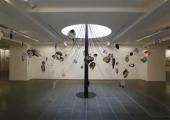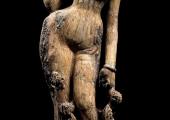Did Atlantis really exist? Set aside the crackpot theories and look at the evidence
Here’s a question: what have the eminent Victorian statesman and four-times prime minister William Gladstone and the Nazi Reichsführer Heinrich Himmler have in common? Well, if you didn’t catch last night’s Timewatch Special, you'd probably never guess. They were both obsessed with discovering that great, drowned civilisation of antique myth, Atlantis. Gladstone thought it was located somewhere on the South Atlantic, so he proposed a government sponsored expedition but was turned down by the treasury, and Himmler thought that the Ayrian master race was directly descended from Atlantians and that Tibet was the place, so he organised an expedition in 1939 (as if there wasn’t enough to occupy him that year). Excluding the finer details of master-race lineage, could either of them have been right? Did Atlantis, as first envisaged by Plato, and subsequently spawning thousands of books, really exist?








